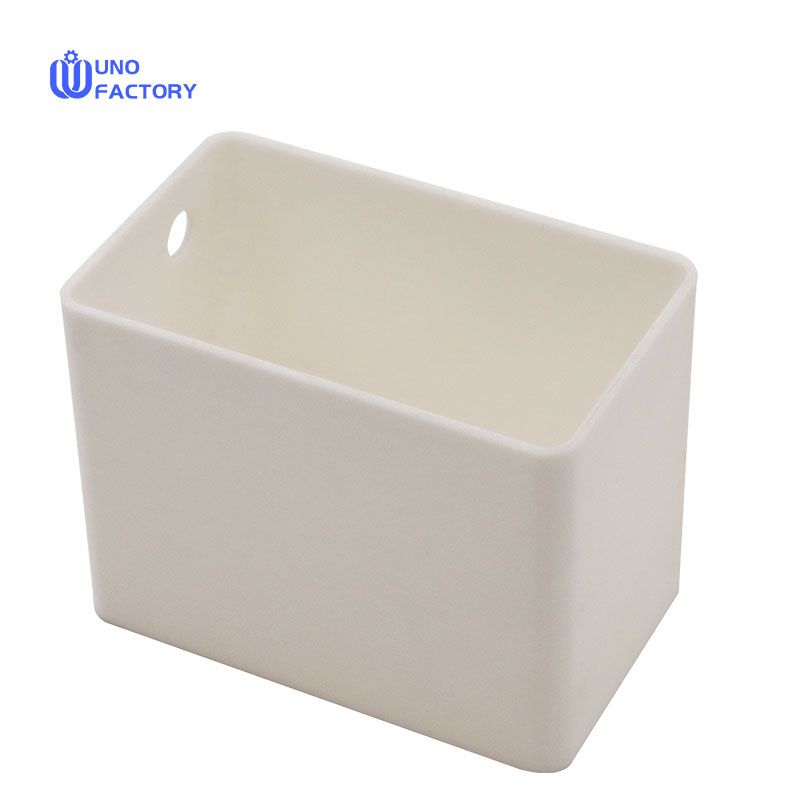Time to read: 6 min

What is PC-ABS and Its Density?
PC-ABS is a thermoplastic polymer blend that combines the benefits of both PC and ABS. It is known for its strength, toughness, and resistance to impact. The density of PC-ABS varies based on the specific ratio of PC to ABS, but generally, it ranges from 1.05 to 1.20 g/cm3, making it a lightweight material compared to many other engineering plastics.
Key Benefits of PC-ABS
-
Lightweight Material: With a density of approximately 1.15 g/cm3, PC-ABS is lighter than many other plastics, which is a significant advantage for applications where weight is a concern.
-
Transmittance/Optical Nature: While PC-ABS is generally opaque, it retains the glossy surface of ABS and can reflect light well, offering a mirror-like shine when polished.
-
Heat Resistance: PC-ABS exhibits good thermal resistance, allowing it to function in roles where ABS alone might deflect or burn.
-
Chemical Resistance: Though not specified for harsh chemical environments, PC-ABS has better resistance to solvents and oxidation than ABS alone.
-
Toughness and High Impact Strength: PC-ABS is known for its ability to absorb energy and plastically deform without breaking, making it ideal for applications requiring high impact resistance.
-
Protection from UV Radiation: While not completely resistant to UV degradation, PC-ABS offers better protection than ABS alone.
Mechanical Properties of PC-ABS
The mechanical properties of PC-ABS, influenced by its density and composition, are crucial for engineering applications:
- Tensile Strength: 5,900 psi/ 41 MPa
- Tensile Modulus: 278 ksi/ 1.9 GPa
- Tensile Elongation: 6%
- Flexural Strength: 9,800 psi/ 68 MPa
- Flexural Modulus: 280 ksi/ 19 GPa
- IZOD Impact Notched: 3.7 ft-lb per in / 196 J per m
- IZOD Impact Un-notched: 9 ft-lb per in/ 481 J per m
Applications and Uses of PC-ABS
PC-ABS, with its balanced properties including density, is used in a variety of applications:
- Automotive interior components
- Electronic appliance housings
- Portable handheld device enclosures
- Protective casings for electronics
- Structural components in various industries
Advantages and Disadvantages
Advantages:
- Heat-treatable to enhance properties.
- Weldable for assembly and construction.
- Machinable for complex part fabrication.
- Durable for heavy-duty use.
Disadvantages:
- More brittle than some materials at high temperatures.
- Susceptible to UV degradation.
- Higher cost due to alloying elements.
Comparison with Other Materials
PC-ABS sits between high-carbon and low-carbon steels, offering a balance of strength and ductility. It also compares favorably with stainless steel in terms of resistance to rust and corrosion.
How UnoFactory Can Help
At UnoFactory, we offer a wide range of manufacturing capabilities, including custom machined, sheet cut, and bent parts in PC-ABS. Our focus on material properties like density ensures that your parts meet the highest standards of quality and performance. For more information on how UnoFactory can assist with your PC-ABS requirements, contact us today.
Disclaimer
The content provided is for informational purposes only. UnoFactory makes no representation or warranty, expressed or implied, regarding the accuracy, completeness, or validity of the information. Performance parameters, geometric tolerances, specific design features, quality, and types of materials, or processes should not be inferred to represent what will be delivered by third-party suppliers or manufacturers through UnoFactory’s network. Buyers are responsible for defining the specific requirements for their parts. Please refer to our terms and conditions for more information.




